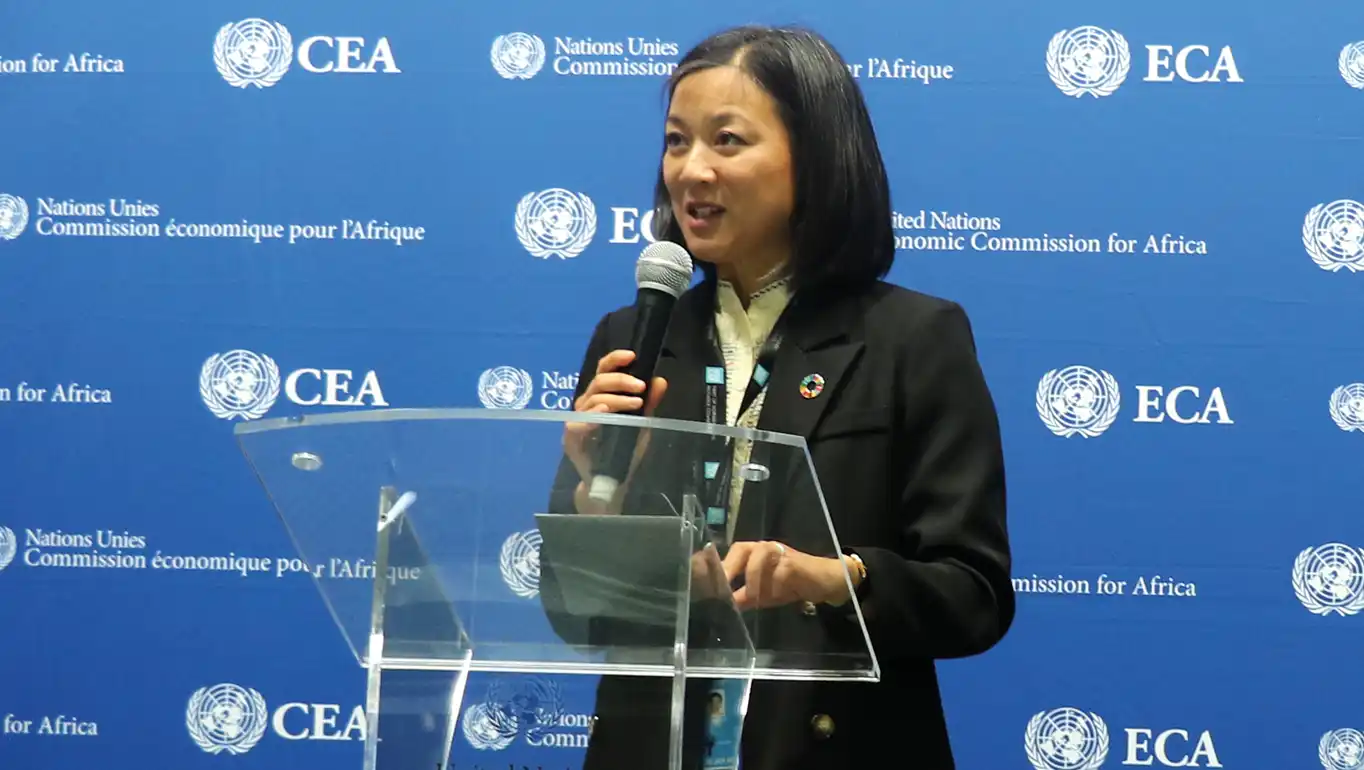No matter who you are or where you serve, everyone has a role to play in preventing and responding to sexual exploitation and abuse. In this series by the Office of the Special Coordinator on Improving the UN Response to Sexual Exploitation and Abuse (OSCSEA), we highlight individuals who are upholding the UN’s core values by protecting staff and communities from harm.
What does a typical day in your role as the UN’s Inter-Agency Protection from Sexual Exploitation and Abuse (PSEA) Coordinator in Ethiopia look like?
I spend most of my days chasing people! As I don’t have a team, I have to rely on the goodwill of others to support the implementation of the inter-agency PSEA Action Plan. There are many commitments in the Action Plan, but everyone is busy, so I need to constantly follow up on procurement, HR, planning training, coordinating community testing and outreach, asking favors to translate documents, and support with data and information management requests.
I’m fortunate to have two great network co-chairs that I can count on to help chase various people. I also work closely with the other cross-cutting leads, such as Accountability to Affected People, Gender, and Age and Disability Inclusion, to make sure that these important aspects are always included in the humanitarian response and not left out (which often happens).
What are the major challenges you encounter in your work and how do you overcome them?
There is a high turnover of PSEA focal points and champions at the sub-national level. At the end of 2024, I felt there was momentum and commitment to move forward on the inter-agency PSEA Action Plan both meaningfully and together. However, with the current funding situation, many of these excellent staff have been let go, and colleagues now have so many more responsibilities with fewer resources. We are always told to “do more with less,” but the reality is difficult. Everything is a priority: people in need don’t have food, shelter, education, clean water, health services – the list goes on. How do we ensure that PSEA is a priority that receives attention, particularly in this funding environment? The key message is to integrate: to identify the risks and gaps and work together to try and address them. We can save money, time, and resources if we work together and pool our efforts. Safeguarding the people we serve is a must – it’s not an option.
What achievement are you most proud of?
I am always so proud when the people I’ve trained go on to train others, when they implement prevention and risk mitigation strategies in their own work, or when someone within the PSEA Network picks up an initiative and runs with it. I’ve seen it happen in Myanmar and Ethiopia, and this is what I’m most proud of. In Myanmar, where we struggled with translation of key concepts, colleagues took the initiative to develop a Wiki page dedicated to the Myanmar language glossary. The idea was that anyone could make suggestions to improve the translation – it was such a brilliant and impactful solution to a problem.
In Ethiopia, I’ve had network members share the findings of consultations with communities on PSEA key messages, organize community viewings of a video challenging gender roles, and even take the ‘Training of Trainers’ program and deliver it to staff and partners. We had a small group of committed members who sat together for over five hours debating and agreeing on the Amharic translation of the PSEA training package. I am so proud of this collective work and the dedication of colleagues to strengthen the safeguarding ecosystem.
What motivates you to work on protection from sexual exploitation and abuse?
Every case of sexual exploitation, abuse, and harassment is unacceptable. There is simply no excuse. We need to have the right staff working for the UN and partners and anyone who serves people in need, but unfortunately there are always those who abuse their power, whether it’s within the workplace or in communities. Making our response safer, ensuring women and girls, men and boys are all protected, this motivates me to work on the issue.
If you were granted one wish, or there was one thing that could allow us to be more successful in addressing SEAH, what might that be?
Have a more harmonized and transparent investigation process. I keep hearing about cases that aren’t reported because people believe that nothing will happen. I’ve personally reported cases and then received the information that the case was closed with no investigation. This is so disheartening, and it erodes the good work being done to prevent sexual exploitation, abuse, and harassment. Staff are our first points of contact for reporting: globally, Harmonised Reporting Scheme (HRS) data indicate that more than 50% of cases are reported to staff. If our own staff fear reporting, what hope do we have?
Finally, what message would you like to share with your colleagues, partners, and leaders?
Don’t stop pushing, fighting, challenging. Change has to come from within, and if we aren’t pushing and fighting for this issue, it will be forgotten or treated as a tick-box exercise. Despite having fewer resources, we still have an obligation to safeguard the people we’re there to serve. Most days feel like I’m swimming upstream, but as long as I’m doing it with like-minded colleagues, it makes the job that little bit easier.
USEFUL RESOURCES
How to report sexual exploitation and abuse:
Learn more about the UN response:



